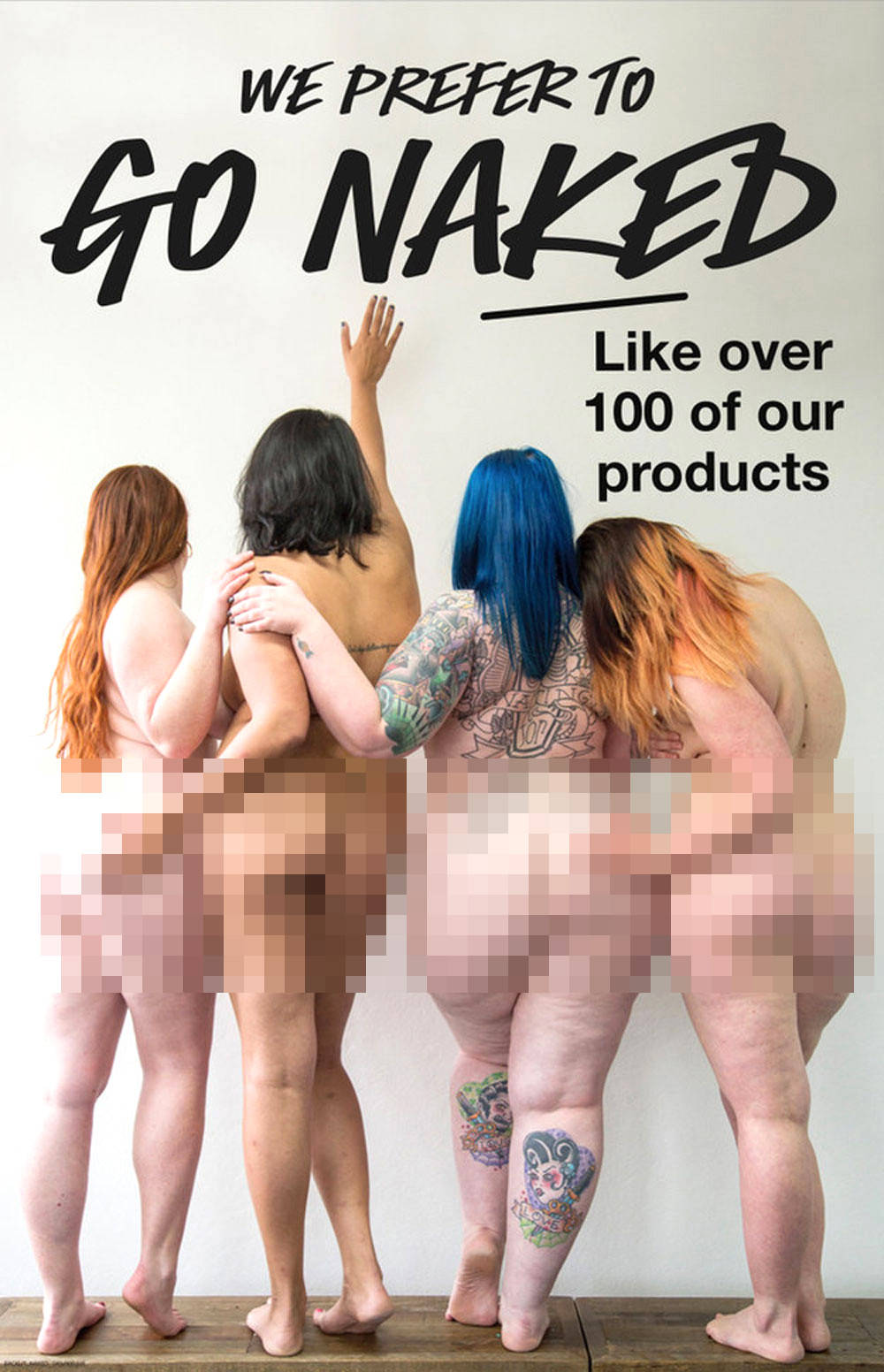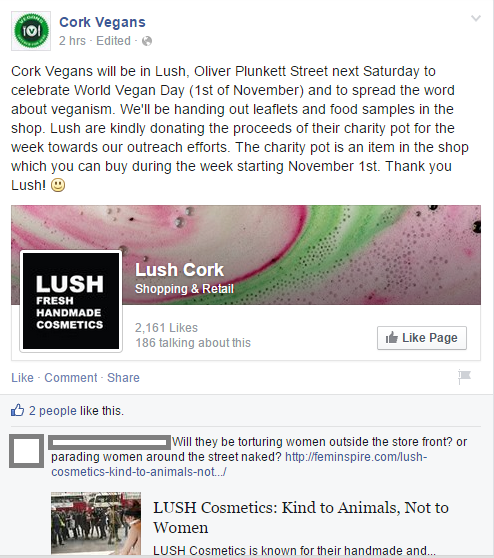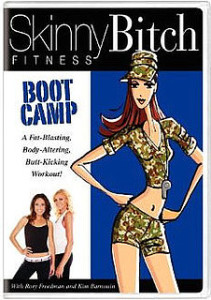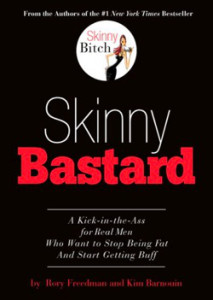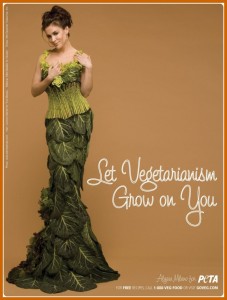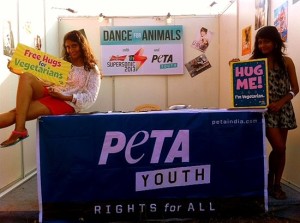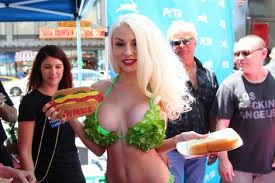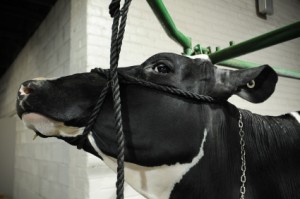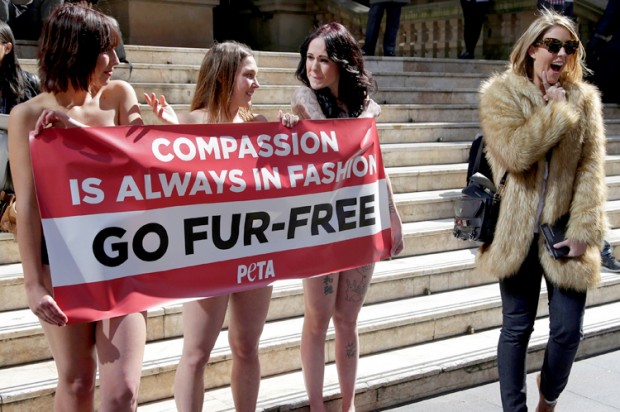Not Safe for work: Contains semi-revealing images of nude woman.
Single-issue campaigning and social movement siloing are toxic for social justice. Despite the veganism’s collective identity as a movement for love and compassion, it has a remarkable tendency to dismiss human injustices under the banner of “nonhumans first.” The “as long as it’s vegan” ideology has been used to protect nazism, rape, racism, and other manifestations of bigotry in the Nonhuman Animal rights movement, stifling critical thought and eliminating any chance for coalition-building.
What makes this ideology so insidious is that its adherents often believe themselves to be a compassionate activist committed to Nonhuman Animals at any cost. While this is, of course, admirable, it is also a self-concept which inhibits self-reflection. Because the movement is white-centric and post-citizen (meaning that most vegan activists already have a number of essential rights and privileges established for themselves), it becomes very difficult for them to acknowledge how many humans still lack these rights.

In one of several misogynistic live action advertisements, LUSH hired a street performer in a nude bodysuit to enact gruesome scenes of vivisection for approximately 10 hours.
This is aggravated by segregation; when privileged groups do not have to interact with disenfranchised groups, it is easy for them to ignore or downplay the experiences of others. Membership in a white-centric, middle-class social movement only reinforces these walls of separation.
Consider, for instance, this Irish grassroots group’s promotion of LUSH Cosmetics products on World Vegan Day. LUSH is known to regularly engage misogynistic tactics to scare or shame women into buying its products. It also mirrors People for the Ethical Treatment of Animals in prostituting women’s bodies to grab media attention and sell goods. The group announced that it would be leafleting outside the Cork LUSH store and accepting donations from LUSH for every “Charity Pot” lotion product that is purchased.
When confronted with LUSH’s misogynist business ethic, this local vegan community predictably employed a number of tropes to restore its positive self-image. First, it suggested that as long as individual women “choose” to participate, this supposedly absconds the organization that hosts the event as well as all involved parties from any responsibility for the negative consequences for women as a class.
Second, it is mistakenly argued that the inclusion of “men, too” would eliminate the misogyny of these tactics. But this falsely presumes that society is gender-neutral and that sexualized violent imagery of women would be interpreted equally with equal impact.
Third, for the purposes of this essay, this group also highlighted that the supposed animal-friendliness of the company trumped any misgivings about its misogyny. Nonhumans first.
As these deflections illustrate, there is a profound disconnect between the oppression of women and the oppression of other animals. The logic that normalizes the commodification and sexualization of violence against women is the same logic that normalizes the commodification and fetishization of violence against animals.
The vegan movement’s confusion over this intersection is all the more evident in its bizarre alliance with LUSH. LUSH is not a vegan company. It is a speciesist industry that profits from the the sale of Nonhuman Animals’ bodies, products, and labor. Bizarre though this relationship may be, it exemplifies how a movement culture that devalues intersectional awareness can undermine Nonhuman Animal interests. Putting “nonhumans first” may unwittingly be putting nonhumans last.
That activists appeal to the marketplace to support their single-issue focus is not surprising. I am of the persuasion that intersectional failure is intimately bound to capitalism and its intentional fanning of individualism and false consciousness. This ignorance is key for the perpetuation of an oppressive system. It undermines efforts for equality.
Any movement, faction, organization, or activist that fails to acknowledge the root cause of capitalism in manifesting inequality will never achieve its goals. By participating in capitalist enterprise, vegans only contribute to the humane-washing of an inherently violent economic system. For resource-starved grassroots groups, it is all too tempting to partner with speciesist industries who trade attention and platform for community approval and immunity from protest.
This trade-off is not a wise one. “As long as it’s vegan” does Nonhuman Animals no favors if it destroys the movement’s ability to be taken seriously as a social justice effort. Neither is it helpful if it normalizes frameworks of oppression, as these frameworks are not species-specific but universally dangerous.
 Dr. Wrenn is Lecturer of Sociology. She received her Ph.D. in Sociology with Colorado State University in 2016. She received her M.S. in Sociology in 2008 and her B.A. in Political Science in 2005, both from Virginia Tech. She was awarded Exemplary Diversity Scholar, 2016 by the University of Michigan’s National Center for Institutional Diversity. She served as council member with the American Sociological Association’s Animals & Society section (2013-2016) and was elected Chair in 2018. She serves as Book Review Editor to Society & Animals and has contributed to the Human-Animal Studies Images and Cinema blogs for the Animals and Society Institute. She has been published in several peer-reviewed academic journals including the Journal of Gender Studies, Feminist Media Studies, Disability & Society, Food, Culture & Society, and Society & Animals. In July 2013, she founded the Vegan Feminist Network, an academic-activist project engaging intersectional social justice praxis. She is the author of A Rational Approach to Animal Rights: Extensions in Abolitionist Theory (Palgrave MacMillan 2016).
Dr. Wrenn is Lecturer of Sociology. She received her Ph.D. in Sociology with Colorado State University in 2016. She received her M.S. in Sociology in 2008 and her B.A. in Political Science in 2005, both from Virginia Tech. She was awarded Exemplary Diversity Scholar, 2016 by the University of Michigan’s National Center for Institutional Diversity. She served as council member with the American Sociological Association’s Animals & Society section (2013-2016) and was elected Chair in 2018. She serves as Book Review Editor to Society & Animals and has contributed to the Human-Animal Studies Images and Cinema blogs for the Animals and Society Institute. She has been published in several peer-reviewed academic journals including the Journal of Gender Studies, Feminist Media Studies, Disability & Society, Food, Culture & Society, and Society & Animals. In July 2013, she founded the Vegan Feminist Network, an academic-activist project engaging intersectional social justice praxis. She is the author of A Rational Approach to Animal Rights: Extensions in Abolitionist Theory (Palgrave MacMillan 2016).
Receive research updates straight to your inbox by subscribing to my newsletter.

